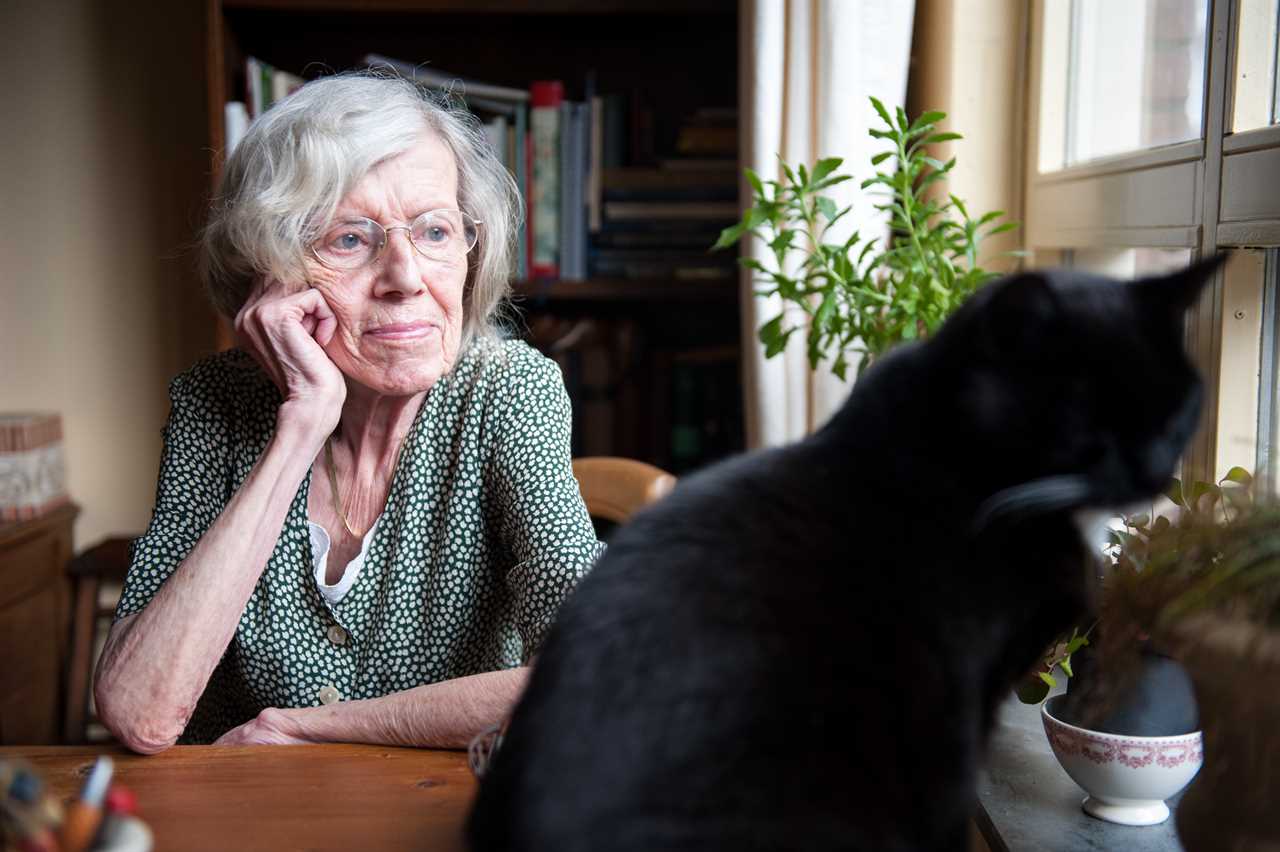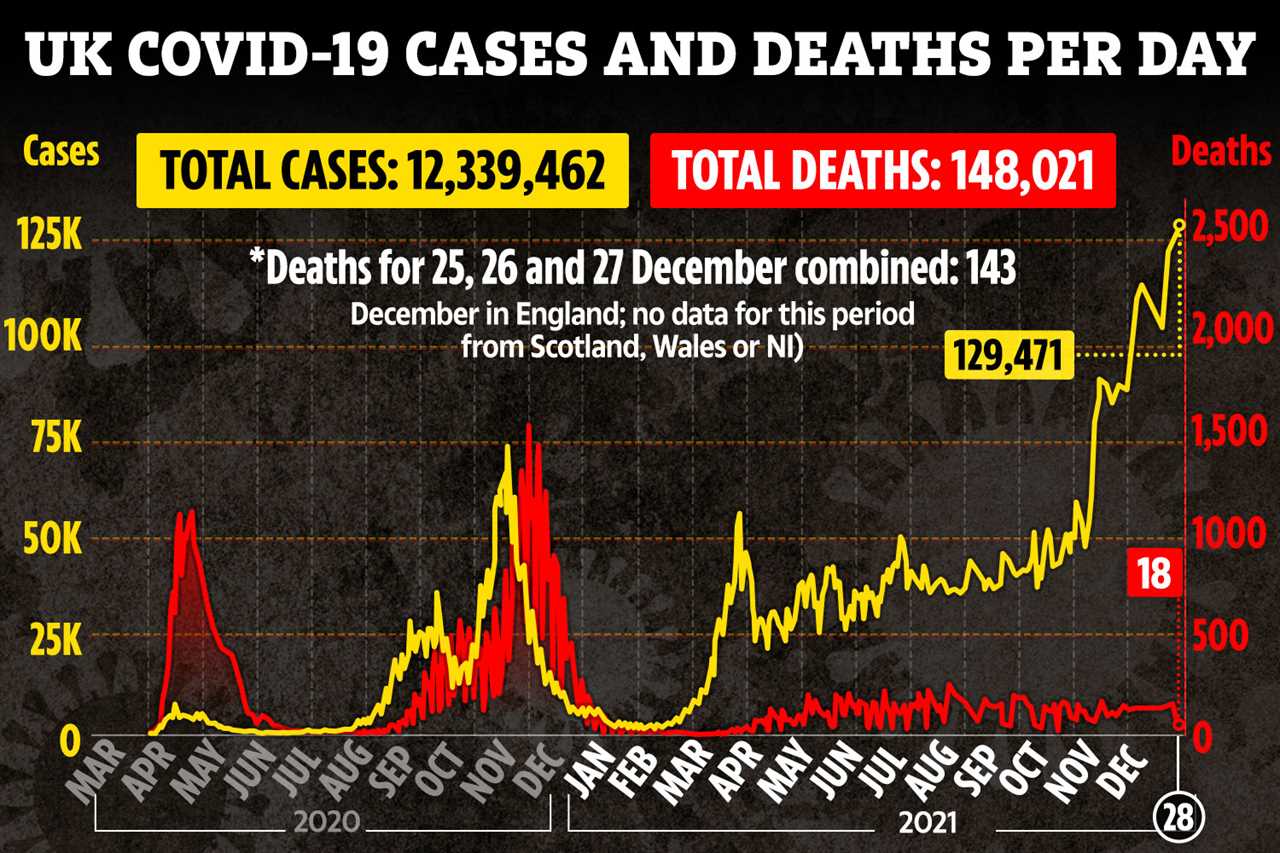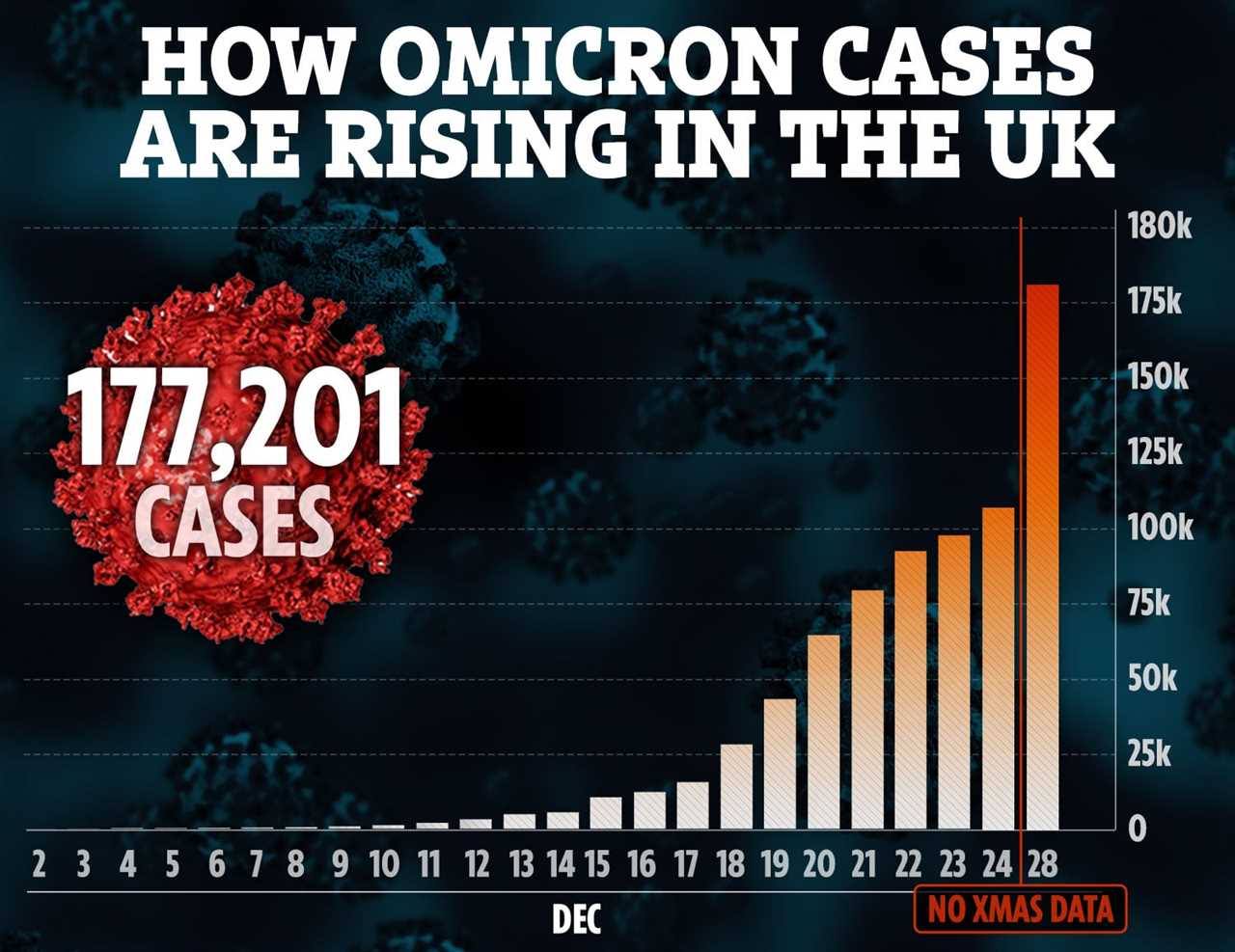HUNDREDS of thousands of Brits are currently isolating after contracting coronavirus.
But ministers have now been urged to further slash the isolation time to five days.


Before the Christmas break, health secretary Sajid Javid cut the number of isolation days from 10 to seven.
This week officials in the US have cut their isolation requirements from 10 days to five, prompting calls from Brits to further slash isolation.
However, the decision in the US by the Centre for Disease Control (CDC) has been criticised, with some saying it’s ‘reckless’.
The calls for a cut in isolation days comes after it was discovered that the Omicron variant – which is now responsible for 90 per cent of cases in the UK, is milder, with most people suffering cold-like symptoms.
A string of hugely positive studies show Omicron IS milder than other strains, with the first official UK report revealing the risk of hospitalisation is 50 to 70 per cent lower than with Delta.
Covid booster jabs protect against Omicron and offer the best chance to get through the pandemic, health officials have repeatedly said.
Trending In The News’s Jabs Army campaign is helping get the vital extra vaccines in Brits’ arms to ward off the need for any new restrictions.
Experts have cautioned that continuing with the current isolation plans will mean that the NHS is understaffed.
Follow our Omicron Covid live blog for all the latest news & stories
Professor Alison Leary, chair of health care and workforce modelling at London Southbank University said as much as 40 per cent of the workforce could be absent in the coming weeks.
Professor Sir John Bell also this week said that the biggest threat to the NHS is currently the impact isolation is having on staffing levels.
He said: “The stress on the health service at the moment, particularly in London, is the effect of the loss of staff because they’re quarantining because they’ve been in contact [with someone testing positive.
“So I think there will be a workforce issue emerging from that quite soon.”
One expert yesterday said that Covid isn’t going away and that in order to live with the virus, isolation should be scrapped.
Professor Paul Hunter said that while Covid is “not going away”, it is “just one virus” that won’t be a cause for concern by April 2022.
Omicron’s less-severe symptoms mean infected Brits will eventually “go about their normal lives” with no quarantine at all, Professor Hunter said.
Self isolation rules have blighted essential services including the NHS, with 18,829 medics off work due to Covid up to December 19.
At present it’s thought that close to 800,000 Brits are isolating.
Prof Hunter said yesterday: “Ultimately, we’re going to have to let people who are positive with Covid go about their normal lives as they would do with any other cold. And so, at some point, we’ve got to relax this.
“If the self-isolation rules are what’s making the pain associated with Covid, then we need to do that perhaps sooner rather than later.”
Former minister Theresa Villiers also said the government should look to cut the isolation requiements.
Lord Bilimoria, who is the president of the Confederation of British Industry (CBI) also highlighted that rules on isolation in South Africa mean that people who don’t have symptoms, can go about their daily lives.
VIRAL LOAD
However, one expert warned that the decision by the US to change the rules could cause more infections.
Epidemiologist Michael Mina said you should be testing negative before you leave isolation.
Writing on Twitter he said: “CDC’s new guidance to drop isolation of positives to 5 days without a negative test is reckless.
“Some ppl (people) stay infectious 3 days, some 12.
“I absolutely don’t want to sit next to someone who turned pos 5 days ago and hasn’t tested.
“Test Neg to leave isolation early is just smart.”
Mina had previously recommended that the isolation time was cut – but said that this should always be with the requirement that negative tests are done first.
In the UK current rules state that if you test positive for coronavirus then you need to isolate for seven days.
You need to take a negative test on both day six and day seven in order to be able to go outside.
If these tests are positive then you can’t go out and you have to wait until you have two negative tests in a row, up to the previous 10 day point.
But the NHS Track and Trace app is currently still advising people to isolate for 10 days – causing confusion for many Brits.
It’s believed that the app has not yet been updated to include the new rules.
Yesterday Covid cases hit a record high with 129,471 more people testing positive.
But coronavirus-related deaths fell, with 18 fatalities recorded in the UK.
The total number of Covid cases recorded in the UK currently stands at 12,339,462, with 148,021 deaths overall.
Over the three days over the Christmas period, cases had risen by over 320,000.
The update on infection rates comes after the the UK Health Security Agency (UKHSA) said there had been 17,269 additional confirmed cases Omicron reported across the UK.







